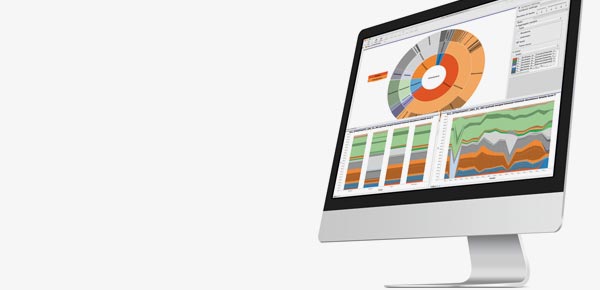


















We are pleased to announce the launch of CLC Microbial Genomics Module, a powerful new tool that enables researchers focused on sequencing and characterizing bacterial communities, for example in food production, agricultural research and infectious disease to visually explore and analyze microbiomes.
With this new module, researchers can now investigate microbial communities as biomarkers that are indicative of patient health, changing yields of agricultural crops or livestock, or of the emergence of public health threats.
For information on the CLC Microbial Genomics Module, please visit https://digitalinsights.qiagen.com/plugins/clc-microbial-genomics-module/ or read the official press release below.
Press Release
QIAGEN launches new bioinformatics solution for microbial genomics
REDWOOD CITY, California, June 15, 2015 – QIAGEN Bioinformatics, today announced the launch of its CLC Microbial Genomics Module which enables academic and commercial researchers focused on food production, agbio and infectious disease to visually explore and analyze microbiomes. This new add-on module is available via an integration with the widely used CLC Genomics Workbench and CLC Genomics Server software solutions.
“As an emerging field, the study of microbiome genomics suffers from a lack of integrated solutions that allow us to seamlessly go from raw next-generation sequencing data to the statistical analysis of results and metadata to the interactive visualizations that provide the insights,” said Gautam Dantas, PhD, Associate Professor at the Washington University School of Medicine. “The CLC Microbial Genomics Module directly addresses this challenge by offering an end-to-end workflow that integrates the algorithms, interactive visualization and powerful statistical tools we need into a single solution.”
The CLC Microbial Genomics Module is a comprehensive solution for microbiome profiling that provides preconfigured automatic workflows and complete analyses for individual samples or entire experiments. The software’s tools do not require bioinformatics expertise and enable visual microbiome composition browsing and analysis at different taxonomic levels and in the context of metadata. Operational Taxonomic Units (OTU)-clustering and taxonomic annotation are based on common reference databases such as Greengenes, Silva and UNITE. Principal Coordinate Analysis (PCoA) results can be explored three dimensionally in the context of sample metadata, to understand which samples share similar features.
“NGS technology is expanding with an ever increasing variety of applications, and in few fields are samples and data more complex than the intricate world of microbial communities and their interplay with their hosts and the environment,” said Dr. Arne Materna, global product manager at QIAGEN Bioinformatics. “CLC Microbial Genomics Module further expands our portfolio for researchers utilizing next-generation sequencing data. With this new module, researchers can now investigate microbial communities as biomarkers that are indicative of patient health, changing yields of agricultural crops or livestock, or of the emergence of public health threats.”
Bioinformatics is a key growth driver for QIAGEN. The Company’s integration of Ingenuity Systems, CLC bio and BIOBASE has created the industry-leading provider of integrated bioinformatics solutions and expertly curated content (such as Ingenuity Knowledge Base and HGMD®) for the analysis, interpretation and reporting of biological data. For information on the CLC Microbial Genomics Module, please visit https://digitalinsights.qiagen.com/plugins/clc-microbial-genomics-module/.
About QIAGEN
QIAGEN N.V., a Netherlands-based holding company, is the leading global provider of Sample to Insight solutions to transform biological materials into valuable molecular insights. QIAGEN sample technologies isolate and process DNA, RNA and proteins from blood, tissue and other materials. Assay technologies make these biomolecules visible and ready for analysis. Bioinformatics software and knowledge bases interpret data to report relevant, actionable insights. Automation solutions tie these together in seamless and cost-effective molecular testing workflows. QIAGEN provides these workflows to more than 500,000 customers around the world in Molecular Diagnostics (human healthcare), Applied Testing (forensics, veterinary testing and food safety), Pharma (pharmaceutical and biotechnology companies) and Academia (life sciences research). As of March 31, 2015, QIAGEN employed approximately 4,300 people in over 35 locations worldwide. Further information can be found at www.qiagen.com.